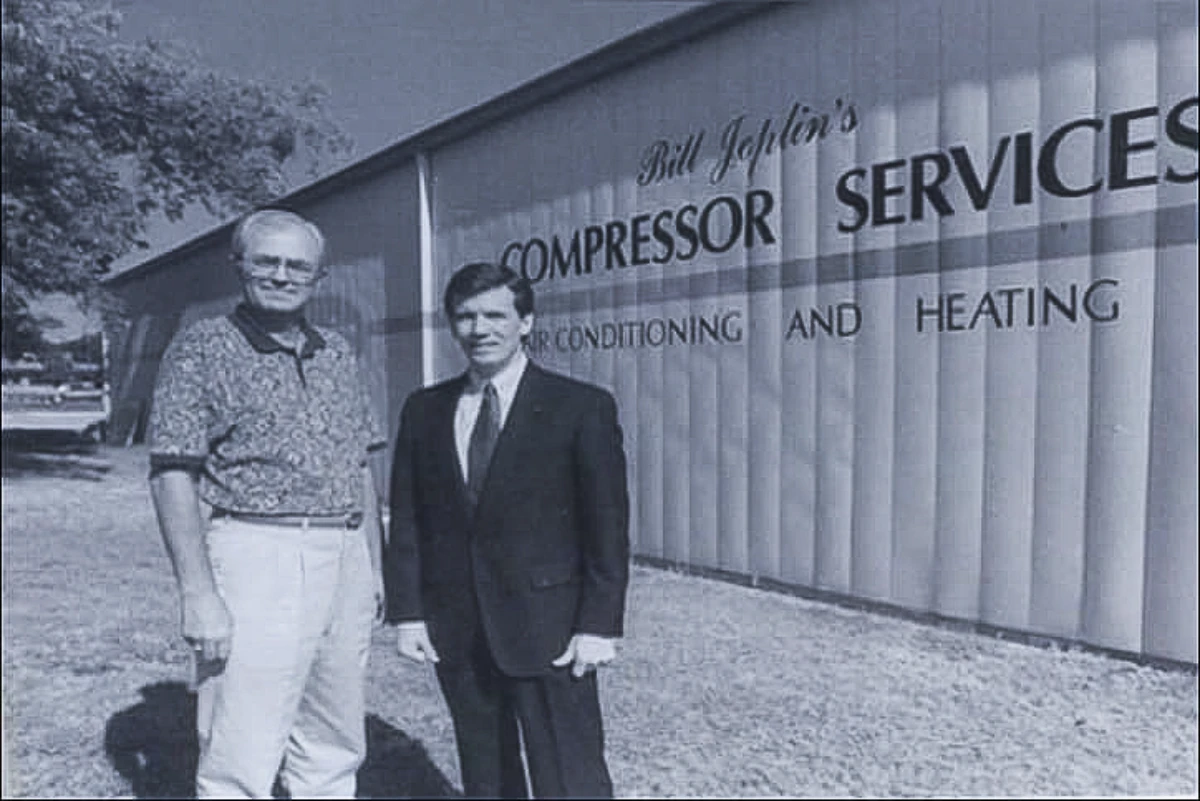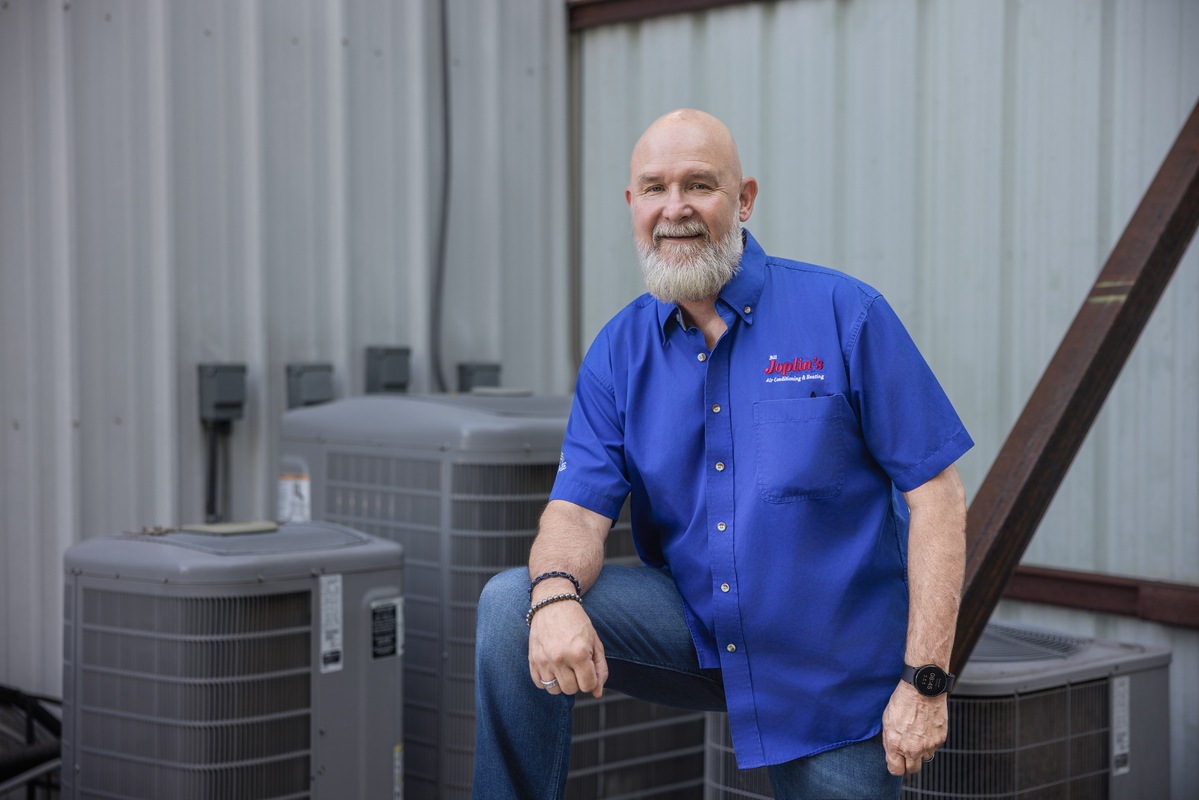When you live in McKinney, Texas, you rarely have to put up with the inconveniences of winter that people in the northern U.S. have to deal with for three to four months, or even longer, out of every year. Your car probably won’t be buried in feet of snow, your pipes aren’t as likely to freeze, and your furnace isn’t going to cost you hundreds in heating every month. After all, you live in Texas where the weather, for the most part, is quite warm, so do you even need a furnace? The answer might surprise you.
Texas Winter Weather
Whether you need a furnace in your Texas home depends on where in Texas you live. People in the southern portions can often get away with heating solutions like heat pumps rather than a large furnace, because the temperature so rarely dips anywhere near freezing.
In McKinney, however, the weather is a little more variable. Seasons are mild, sure, but they’re still there, and January can get pretty cold. With an average January low of 33, McKinney residents are in an interesting spot when it comes to home heating solutions. You may not be suffering through a New England winter, but it’s certainly not balmy and beautiful outside all the time either. That being said, is a furnace really the best option for your McKinney home? Well, to answer that question you have a lot of things to consider.
Furnace Alternatives: How a Heat Pump Works
Heat pumps are a popular HVAC solution in warmer parts of the U.S. They work year-round both heating and cooling, which means you rely on one HVAC system instead of two (an AC and a furnace). They’re also popular because of their energy-efficiency. The most common models run on electricity (though you can get geothermal models, too) and don’t make much of a dent in your electricity bill because of how they work.
A heat pump works with heat exchange. In simplest terms, it pulls heat from one source and gives it to a different source. In summer that means it pulls the heat from the air before pumping that air into your house. In winter, it uses either air, water, or the ground as a heat source to infuse your home’s air with heat before venting it inside. The energy-efficiency comes from the smart way it does this: the heat pump conserves as much energy as possible by using existing heat instead of generating its own, the way a furnace does.
In a geothermal heat pump, the ground is where the heat comes from, making this one of the most energy-efficient types of heat pump. A loop is buried in the ground outside your house; liquid in the loop is warmed by the earth and then used to heat the air in your home. In the summer, the process reverses.
An HVAC system that heats and cools year-round sounds like a pretty good solution, doesn’t it? When the temperature is 50 outside and you don’t need a lot of heat, running your furnace can seem like overkill. Plus, it gets pretty chilly in the middle of the night, but McKinney’s average daytime temperatures in winter don’t drop below 40 as often. With that in mind, heat pumps are fantastic technology, but they do have a few drawbacks.
Relying Solely on a Heat Pump
The reason you may notwant to rely solely on a heat pump in your McKinney home is this: they don’t heat very efficiently or very well at temperatures under 40 degrees. When it’s snowing outside and below 30 in January, you’re not going to care how energy-efficient the heat pump is if you’re cuddled up under several blankets with a bunch of space heaters running.
If you don’t mind losing the energy-efficiency of your heat pump, you can run it in weather under 40 degrees, but those great power savings aren’t going to happen. Some heat pumps have heating coils in them which will heat the air instead of using the heat transfer method. You get warm air, but this is when heat pumps stop being more efficient than furnaces.
With these details under consideration, it makes sense that McKinney residents wouldn’t want to only rely on heat pumps. So where does that leave you? Well, for most of the year you can take advantage of having a heat pump and saving that energy. You’ll just need a back-up method of heating your home during those winter days when the temperature drops below 40. A furnace is the obvious heating solution, since they’re extremely powerful and can heat your house very quickly. Before you get a traditional furnace, however, understand your options for home heating.
Furnaces VS Other Heating Options
Your furnace’s efficiency depends significantly on its age and how well it’s been maintained. Furnaces can achieve an astoundingly high rate of efficiency. The U.S. Department of Energy reports that they can reach 98.5 percent efficiency. If your model is old or in need of repair, however, that efficiency falls to 59 percent.
Your other option is electric heating. Some homes have it built-in; you may have seen one with the long metal units installed along the baseboards. Electric heating is powerful and can be extremely energy-efficient, but you’ll still spend more money on that electricity than you would on the gas or propane that powers your furnace. Unless you’re content carrying a space heater around with you in the winter when it’s cold, for energy-efficiency you should probably stick to a new furnace model.
Keep in mind that if you have a heat pump and a separate furnace (or other heat source), it’s up to you to judge when you want to switch from a heat pump to furnace and back again. Unless you’ve got a smart thermostat hooked up to both, you’ll have to do some assessing based on the weather and the temperature in the house. It might be obvious that you want the furnace during January when things are pretty cold, but winter temperatures fluctuate, and so will your furnace and heat pump usage.
Hybrid Alternatives and Solutions
Thankfully, companies like Carrier have taken these difficulties into consideration and designed hybrid systems meant to maximize your HVAC’s energy-efficiency without detracting from your comfort at home. The Hybrid Heat System by Carrier is a combination of heat pump and gas furnace, all controlled by Carrier’s Infinity system. When you want to invest in a system that takes the energy-efficiency of multiple HVAC solutions very seriously, Hybrid Heat deserves some serious consideration.
The system itself can gauge the temperature outdoors and assess which type of heating you need in cooler weather. If it judges that the heat pump can handle it, it’ll run the heat pump and save your gas bill (and your fossil fuel usage!).
If, on the other hand, the weather outside is too cold for the heat pump, the system switches to the furnace. Considering that you could have a winter day where the weather is 60 at noon, then drops to 35 at night, the Hybrid Heat System seems like a pretty good heating and cooling solution for your home. The best part is you can let it run because it makes all these decisions and assessments itself.
Monitor the energy-efficiency of your home heating system this winter. Do you feel like your energy bills are higher than they used to be? Are you using a furnace, or relying on some other heating implement to warm your house during those cold winter nights? Texas has unique HVAC needs because of its mild climate, and as a McKinney resident you have the chance to take advantage of energy-saving solutions that people in other parts of the country can’t use as effectively.
To find out more about hybrid heating systems, heat pumps or furnaces, give Bill Joplin’s Air Conditioning and Heating a call at 888-414-4655. Schedule a maintenance appointment, have your current HVAC system checked for efficiency, or ask about Carrier’s Hybrid Heat System. You’ll be one step closer to a more energy-efficient household this winter.


